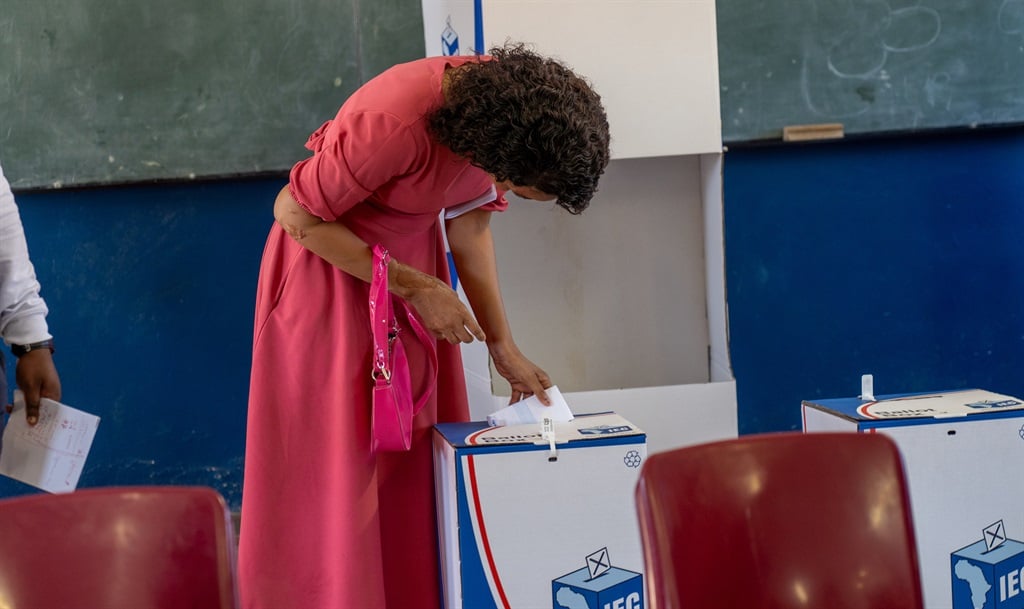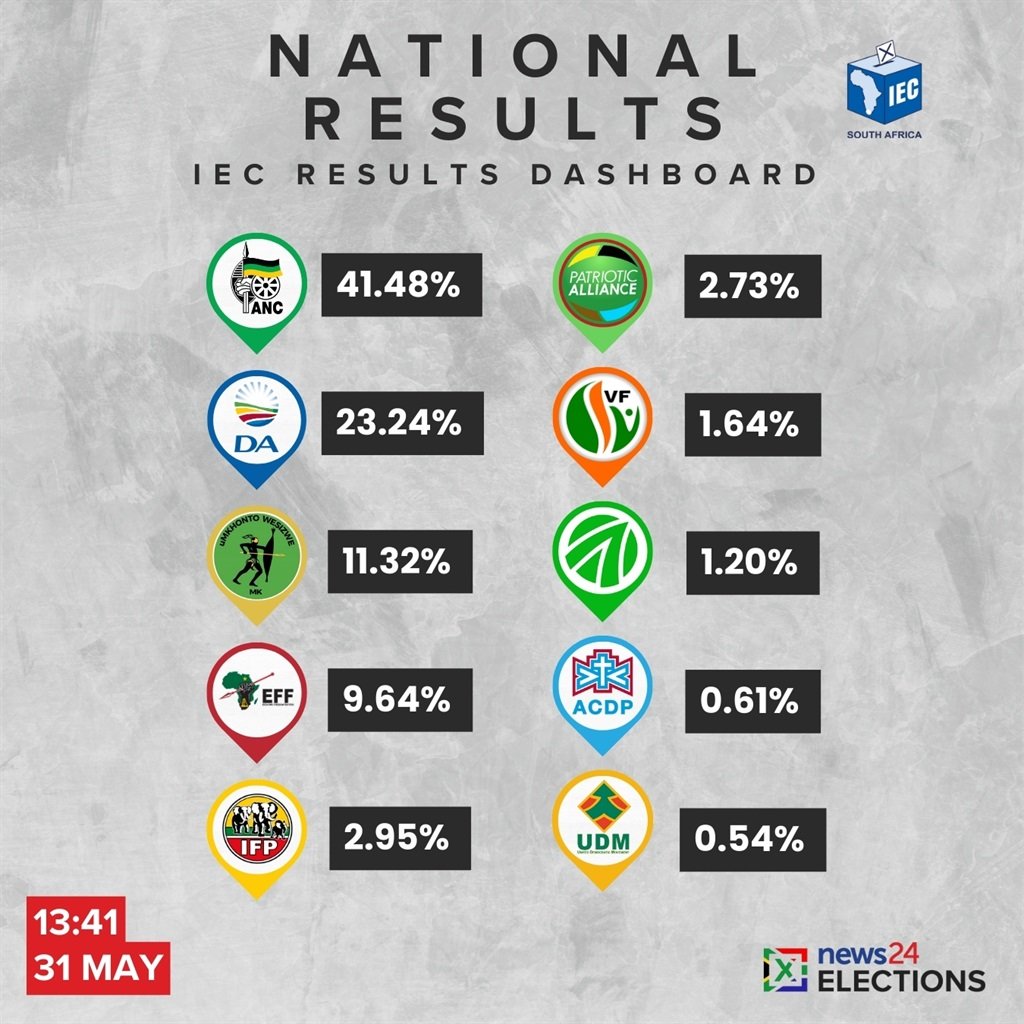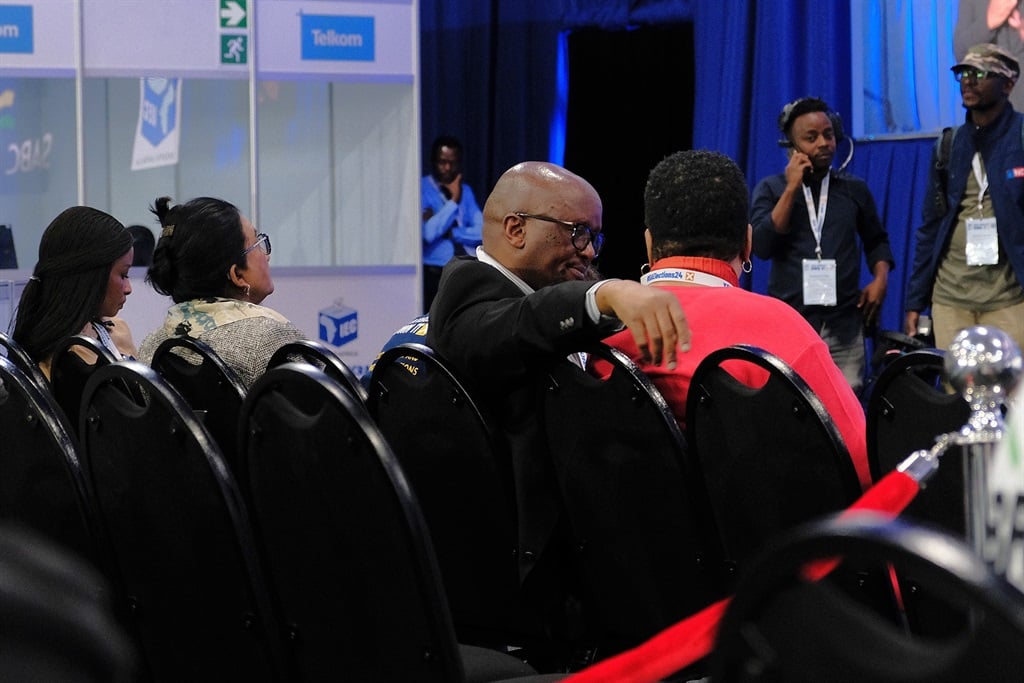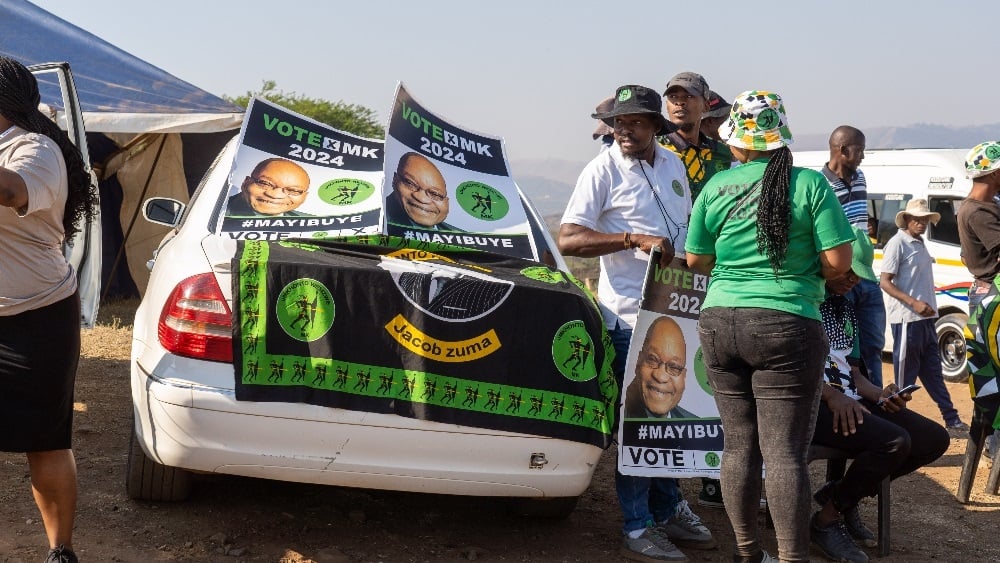
A women casting her vote in Nkandla. (Alfonso Nqunjana/News24)
- A survey by the Human Sciences Research Council found 3% of voters were coerced into drawing their cross behind a party.
- However, the overwhelming majority of respondents said the elections were free and fair.
- Track the latest results via our Elections Map.
In Wednesday’s elections, 3% of the electorate were coerced into changing their vote, the Human Sciences Research Council found in its Election Satisfaction Survey.
However, the overwhelming majority of voters considered the elections free and fair.
The HSRC interviewed 13 155 respondents at a sample of 300 voting stations across the country. Their margin of error is less than 1%.
On Friday, the HSRC presented its findings to the media at the National Results Operations Centre.
ROLLING COVERAGE | From bad to worse for ANC: News24’s editors and analysts break down some of the election results
Of the voters it interviewed, 12% reported experiencing someone trying to force them to vote for a certain political party or candidate.
This happened to 9% before election day, and 4% reported the coercion was by party agents, and another 4% from friends and family.
Another 4% of people said it happened while they were queuing – made up of 2% by party agents, 1% friends and family, and 1% by other voters.
Another 2% said it happened – 1% by party agents, and 1% by family and friends.
According to the HSRC, election officials were barely mentioned as a source of electoral coercion.
“Of those reporting coercion, 73% reported it had no bearing on who they actually voted for on election day, but 25% said it did and 2% uncertain.
“So, the 25% that said it did – translates to 3% of the voting public,” said the HSRC’s Dr Benjamin Roberts.
“It is concerning,” added Roberts, saying it had been increasing over time, particularly since the 2016 local government elections.
“It particularly jumped higher in 2019 and 2024. So, it is something that we really have to watch out for.”
He said it was predominantly happening before elections, in households and communities.
READ | ‘Elections are never perfect,’ says IEC after losing ballot box
“But it is something that we do need to worry about, because it is translating into 3% of change, relative to what they might have voted for on election day,” added Roberts.
The HSRC’s results indicated voters overwhelmingly believed the elections were free and fair – at 92% – and they positively rated the conduct of officials at voting stations.
Furthermore, trust in the Electoral Commission of South Africa (IEC) remains high, even though it has declined over the past decade, along with trust in public institutions in general.
Almost all voters felt they were safe to cast their ballot in secrecy and the majority of voters felt the IEC adequately considered the needs of vulnerable groups, like the elderly and people with disabilities.
Wednesday’s voting was characterised by long queues.
It therefore came as no surprise the HSRC found the time voters spent in line increased. It found 11% of the respondents spent more than an hour in line, compared to 2019’s 2%.
It also found people who spent more time in the queue, were less confident their votes would be counted properly and were more supportive of electronic voting.






Recent Comments